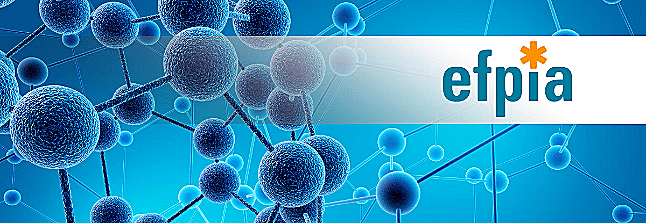HERE IS THE LIST OF ITALIAN DOCTORS AND FOUNDATIONS, UNIVERSITIES FINANCED BY GLAXO-SMITH-KLINE IN 2015, 2016 AND 2017
SURPRISELY, THE HIGHER INSTITUTE OF HEALTH APPEARS ON THE LIST
IL CODACONS: TRANSPARENCY IS A MUST, WHAT IS THIS MONEY FOR?
The Codacons has decided to publish on its website, for obvious reasons of transparency of correct information to citizens, the 
The EFPIA (European Federation of Pharmaceutical Industries and Associations) is in fact an association of pharmaceutical industries, with a direct representation of 33 national associations and 40 leading pharmaceutical companies, characterized by a strong emphasis on the transparency it requires of its affiliates. It is precisely to respond to this request that Glaxo-Smith-Kline has made public, among other things, the lists of Italian doctors who received funding in 2015/2016/2017 (as services, consultancy, various events) .
Despite the lack of detailed references to these loans, and for the most part we limit ourselves to generic references, the total donated by Glaxo-Smith-Kline appears to be growing: more than 11 million in 2015, more than 13 million in 2016, almost 15 million in 2017. now, the question is legitimate: what is this money for?
Among Universities, Foundations and Hospitals, it is surprising, in particular, to read the name of the Istituto Superiore di Sanità (125,660.00 euros in 2016, 93,940.00 euros in 2017 for "services and consultancy"): it appears at least inappropriate, in fact, that the technical-scientific body of the National Health Service is included in the list, and it would really be appropriate to explain the reasons for these transfers - disseminating the details - so as to increase transparency and knowledge on the point. Which, of course, could only contribute to the overall credibility of the National Health System.
Here are the reports cited:
GSK_IT_2015_EFPIA_HCPO_Disclosure_Report
GSK_IT_2016_EFPIA_HCPO_Disclosure_Report
GSK_IT_2017_EFPIA_HCPO_Disclosure_Report
Related news: GSK. ABAC – Politica anticorruzione e corruzione (pdf)
GSK extension. Code of practice for promotion and scientific engagement (pdf)
Ed: Codacons, come spesso accade, si fa promotore di iniziative tali da suscitare scandalo nell’opinione pubblica. Per giudicare però occorre conoscere come stanno le cose realmente.
The publication of data relating to economic transactions for research, consultancy, congresses and training activities is envisaged by the Efpia Transparency Code, implemented in Italy with the update of the Farmindustria code of ethics. The data, published in full compliance with the Italian legislation on privacy, concern the individual healthcare professionals who have signed the consent and, in aggregate form, all the others (at least 70% of Italian doctors declared themselves in favor of making the fees public received from pharmaceutical companies). For each doctor who has given consent, the amount of the transfer disbursed, the name of the structure to which it belongs and the category in which the contribution falls (conferences, consultations, etc ...) are visible. To these data are added those relating to R&D grants, published in aggregate, as established by already existing regulations.
After corruption scandals, especially in China, GSK has given itself precise rules so as to avoid that
According to the reasons in favor of these transactions it is believed that the cooperazione tra aziende farmaceutiche, enti regolatori, operatori sanitari (HCP), organizzazioni sanitarie (HCO) e pazienti, sia essenziale per il miglioramento sostenibile dell’assistenza sanitaria. As experts in their field, healthcare professionals provide first-hand scientific and medical knowledge and unique insights into patient care. This partnership is fundamental to research, to the advancement of medical science, helping to meet the diverse needs of patients and public health.
Oltre al codice EFPIA la legislazione italiana regola questo tipo di “sponsorizzazioni” con l’art. 123 And 124 of Legislative Decree 219/06.
It follows that all of this is legitimate.
Possiamo fare le seguenti considerazioni: gli operatori sanitari sono indispensabili alle aziende farmaceutica perché possono fornire le conoscenze scientifiche alla ricerca farmacologica, nel contempo le aziende farmaceutiche diventano indispensabili ai medici ai quali possono fornire risorse, che lo Stato non dà, per le loro ricerche e formazione medica. Che tutto questo avvenga nella massima trasparenza per evitare operazioni scorrette è positivo. Poi dipende sempre dai controlli, che sono quelli che sono ma che dovrebbero essere molto attenti e severi affincé non venga nascosta attività illecite. E’ eticamente e politicamente corretto tutto questo? Ognuno può dare la sua risposta in base alla propria coscenza.
Ovviamente stiamo parlando di ricerca e formazione, l’informazione scientifica viene dopo e si avvale dei dati della ricerca e dei lavori clinici da trasmettere agli operatori sanitari.
We suggest that Codacons take care of the lobbying activity which has no regulation in Italy.
Interessi poco chiari fanno sì che non possano essere approvate norme che rendano trasparente l’azione dei lobbisti perché altrimenti cadrebbero gli altarini. L’attività di lobbyng può essere corretta, legittima e chiara, ma l’assenza di una legge impedisce all’elettore di comprendere cosa c’è davvero dietro l’emendamento presentato dal singolo deputato, quale interesse e chi l’ha redatto; impedisce di sapere chi paga e per cosa.
According to relationship drawn up in 2015 by the Corporate Europe Observatory (CEO), big pharma reported spending on lobbying activities, at European Community level, amounting to 40 million euros (in 2012, 8.3 million euros). An enormous economic power, through which it is able to influence the decision-making processes that take place in the community bodies. And in Italy?
